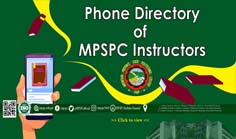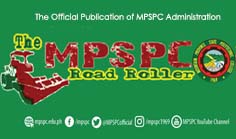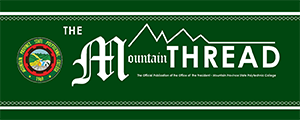Mathematics Competency of Graduating Engineering Students of MPSPC AY 2013-2014
(Emily Ann B. Marrero and Rose B. Amoy)
INTRODUCTION
Engineers are necessary for the design, development and maintenance of infrastructure and technology to sustainably satisfy society’s needs and lifestyles. With Mathematics as an integral part of the Engineering Education, efforts to improve the mathematical and technical abilities of engineering students are being pushed by the Commission on Higher Education (CHED) through the Outcomes Based Education (OBE) System in higher education institutions offering engineering programs to meet the demands of global competitiveness. CMO no. 37 series of 2012 defines Outcomes Based Education (OBE) as “clearly focusing and organizing everything in an educational system around what is essential for all students to be able to do successfully at the end of their learning experiences.” This CMO is a reinforcement of the previously CHED-issued memoranda in 2007 and 2008 now currently in effect among engineering schools as a means to establish an OBE system to prepare the concerned HEIs in meeting the accreditation criteria of the different accrediting bodies.The CMOs require about 26 units of mathematics subjects in all engineering programs. With the establishment of OBE in engineering programs, researches on the competencies of engineering students have to be encouraged to prepare the engineering educators of the competencies that the students need as they graduate from an engineering program.
Little research has been conducted to explore engineering students’ learning of mathematics, in particular with respect to what mathematical competencies are needed for engineers, how engineering students’ understanding and use of mathematics can be captured and described even concerning their learning strategies (Glasmachers, Griese,Kallweit, &Rösken, 2011), and how inquiry based learning can help students to come to know and apply mathematical concepts (Jaworski, 2011). MPSPC has been offering engineering courses ever since its start of operation in 1992 on an “open admission but selective retention basis.” The programs being offered are Civil Engineering, Geodetic Engineering, and Electrical Engineering. No research has been done yet to assess the competencies of the engineering graduates of MPSPC so this paper is designed to evaluate the mathematical competencies of the graduating students for academic year 2013-2014.
Licensure examinations for engineering graduates are the ultimate yardstick of the engineering prowess of a graduate. As seen from the Geodetic Engineers Board Exam 2012, 20% of the exam comprises of mathematics which includes Algebra, Plane and Spherical Trigonometry, Solid Geometry, Analytic Geometry, Differential and Integral Calculus, Engineering Economics, and Mechanics and Least Squares. The syllabi for the subjects in the Civil and Electrical Engineering Licensure Exam require the same topics in the mathematics area of the board exam but includes Probability and Statistics. Feedbacks from the engineering licensure examinees of the Mountain Province State Polytechnic College revealed that the examinees performed poorly in the mathematics area of the board examination. Some examinees attributed their poor performance in mathematics to their lack of preparation in that area while the majority of them responded that their poor foundation in some of the mathematics courses caused their failure.
Learning Outcomes are statements of the knowledge, skills, and abilities the individual student possesses and can demonstrate upon completion of a learning experience or sequence of learning experiences e.g., course, program, degree (Barr, McCabe, and Sifferlen, 2001). The learning outcomes in this study are grouped into three (3), knowledge, analysis and application. Knowledge shall include understanding and comprehension of Mathematics topics. Analysis encompasses the students’ ability to solve problems related to a topic. Application shall include problems that are found in real world situations.
The examinees’ poor performance in mathematics in the board examinations and the desire of the Engineering Department faculty members to identify the mathematics deficiencies of the graduates led the researchers to think of evaluating the mathematical competencies of the graduating students along the six subject areas in Mathematics (Algebra, Trigonometry, Analytic Geometry, Solid Geometry, Calculus, and Probability and Statistics). All the graduating Engineering students in Civil Engineering, Electrical Engineering, and Geodetic Engineering were assessed without letting them review.
Devitt and Goold (2012) found out in their research that “Engineers say teachers are the biggest influence on students’ relationships with mathematics and the ability to communicate mathematics and its relevance is the predominant characteristic of good mathematics teachers.”





















